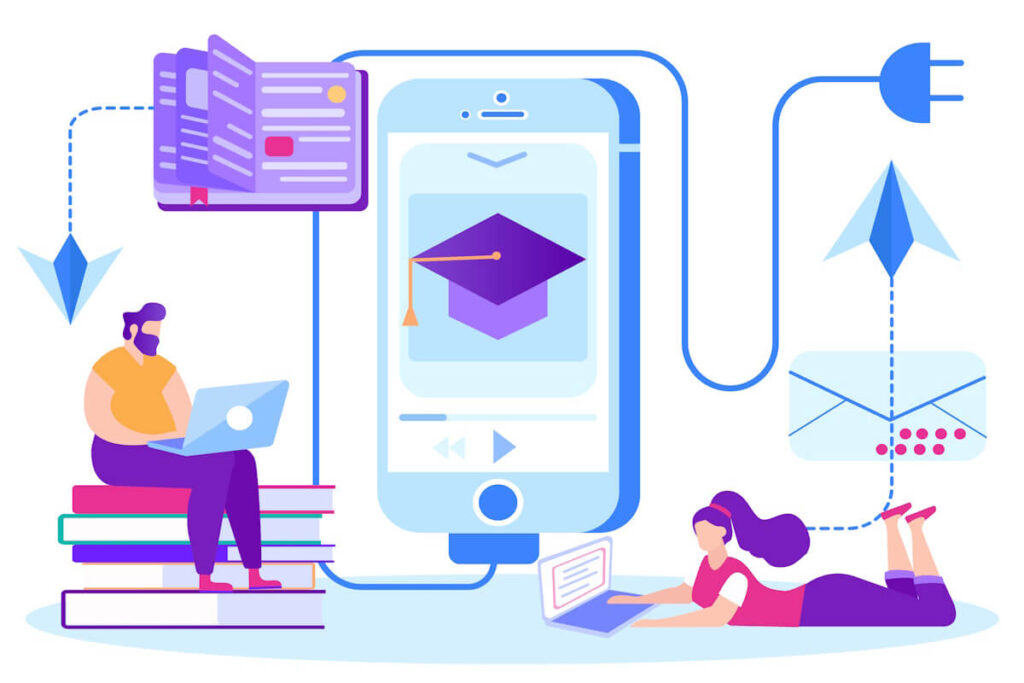In the rapidly evolving world of education technology (EdTech), mobile app development stands out as a key driver of innovation. As educational institutions increasingly adopt technology to improve the learning experience, the demand for mobile apps tailored to students, teachers, and administrators continues to rise. In this article, we will delve into the major trends in mobile app development that are shaping the future of EdTech.
1. Personalized Learning Experiences
Personalized learning experiences are a dominant trend in mobile app development for EdTech. By harnessing artificial intelligence (AI) and machine learning algorithms, mobile apps can analyze student data and behavior to craft individualized learning paths. These tailored experiences empower students to learn at their own pace, focus on their specific strengths and weaknesses, and receive personalized support from educators.
- AI-driven algorithms enable the adaptation of content to suit each student’s learning style.
- Real-time feedback mechanisms help students track their progress and adjust their learning strategies.
- Personalized learning experiences foster student autonomy and motivation, leading to improved academic outcomes.
2. Gamification
Gamification is a rising trend in EdTech mobile app development. By integrating game-like elements such as points, badges, and leaderboards, mobile apps can make learning more interactive and captivating for students. Gamification strategies motivate students to engage with their studies, monitor their achievements, and compete with peers in an enjoyable and stimulating manner.
- Gamification enhances student motivation and engagement by introducing elements of competition and reward.
- Leaderboards and badges provide recognition for student accomplishments, boosting their self-esteem and drive to excel.
- Interactive games and challenges within educational apps make learning more enjoyable and memorable for students.
3. Virtual and Augmented Reality
The integration of virtual and augmented reality technologies is transforming the educational landscape. Mobile apps that leverage VR and AR offer immersive learning experiences, enabling students to explore virtual environments, conduct hands-on experiments, and interact with complex concepts in a tangible way. These technologies elevate student engagement, retention rates, and the overall interactivity of learning experiences.
- VR and AR technologies bring abstract concepts to life, making learning more engaging and comprehensible.
- Immersive simulations and virtual field trips enable students to experience real-world scenarios in a safe and controlled environment.
- Hands-on interactions with 3D models and simulations enhance student understanding and retention of complex subjects.
4. Collaborative Learning Platforms
Collaborative learning platforms are gaining momentum in EdTech mobile app development. These platforms facilitate peer collaboration, group projects, and real-time resource sharing among students. Mobile apps that support collaborative learning foster teamwork, communication skills, and problem-solving abilities, preparing students for a future workforce that values collaborative skills.
- Real-time communication features enable seamless collaboration and idea-sharing among students.
- Group project management tools promote effective teamwork and project coordination.
- Peer feedback mechanisms encourage constructive criticism and mutual learning among students.
5. Accessibility and Inclusivity
Accessibility and inclusivity are paramount considerations in mobile app development for EdTech. Developers are increasingly prioritizing the creation of mobile apps that accommodate students with disabilities, ensuring equal access to educational technology. Mobile apps with built-in accessibility features such as screen readers, voice commands, and customizable settings enhance the learning experience for students with diverse needs.
- Accessibility features such as closed captioning and text-to-speech functionality cater to students with hearing impairments.
- Customizable settings allow students to tailor the app interface to suit their individual preferences and requirements.
- Inclusive design practices promote equal access to educational content for all students, regardless of their abilities.
Conclusion
The future of EdTech is brimming with promise, thanks to the innovative trends in mobile app development that are reshaping the educational landscape. From personalized learning experiences and gamification to virtual and augmented reality, collaborative learning platforms, and accessibility features, mobile apps are revolutionizing the way students learn and interact with educational content. By embracing these trends and harnessing the power of mobile apps, educators can create a dynamic, engaging, and inclusive learning environment for students of all ages and abilities.
Have questions or need more information? Contact us to learn more about how these innovative trends in mobile app development are shaping the future of EdTech.
FAQs:
1. What is one significant trend in mobile app development for EdTech?
One significant trend in mobile app development for EdTech is the focus on personalized learning experiences using AI and machine learning algorithms.
2. How can gamification enhance the learning experience in mobile apps?
Gamification can make learning more engaging and interactive for students by incorporating game-like elements such as points, badges, and leaderboards.
3. How do virtual and augmented reality technologies impact student learning?
Virtual and augmented reality technologies provide immersive learning experiences, allowing students to explore virtual worlds and interact with complex concepts in a hands-on manner.
4. What is the benefit of collaborative learning platforms in EdTech mobile apps?
Collaborative learning platforms promote teamwork, communication, and problem-solving skills among students by allowing them to collaborate with peers and work on group projects in real-time.
